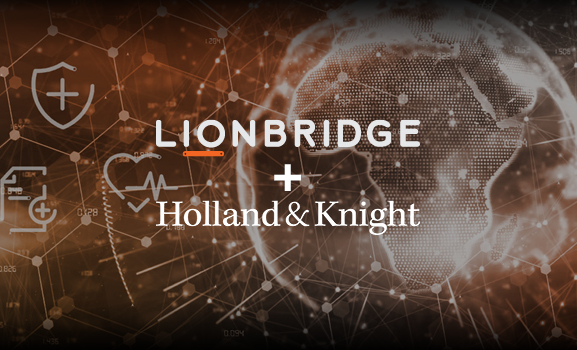- WHAT WE DO
Additional Services

- Industries

Case Study: Multilingual Retail Marketing
New AI Content Creation Solutions for a Sports and Apparel Giant

- RESOURCES

- WHO WE ARE

What We Do Home
Generative AI
- AI Translation Services
- Content Remix
AI Training
- Aurora AI Studio™
Machine Translation
- MT Tracker
Instant Interpreter
Smart Onboarding
Translation Service Models
Content Services
- Technical Writing
- Training & eLearning
- Financial Reports
- Digital Marketing
- SEO & Content Optimization
Translation Services
- Video Localization
- Software Localization
- Website Localization
- Translation for Regulated Companies
- Interpretation
- Instant Interpreter
- Live Events
- Language Quality Services
Testing Services
- Functional QA & Testing
- Compatibility Testing
- Interoperability Testing
- Performance Testing
- Accessibility Testing
- UX/CX Testing
Industries Home
Life Sciences Translations
- Pharmaceutical Translations
- Clinical Trial Translations
- Regulatory Translations
- Post-Approval Translations
- Corporate Pharma Translations
- Medical Device Language Services
- Validation and Clinical
- Regulatory Translations
- Post-Authorization Translations
- Corporate Medical Device Translations
Banking & Finance
Retail
Luxury
E-Commerce
Games
Automotive
Consumer Packaged Goods
Technology
Industrial Manufacturing
Legal Services
Travel & Hospitality
Insights
- Blog Posts
- Case Studies
- Whitepapers
- Solution Briefs
- Infographics
- eBooks
- Videos
Webinars
Lionbridge Knowledge Hubs
- Positive Patient Outcomes
- Modern Clinical Trial Solutions
- Patient Engagement
- AI Thought Leadership
SELECT LANGUAGE:
When cases cross linguistic boundaries, the variations in language, law and culture make an already complicated legal matter even more complex.
“Legal interpretations need to be very specific and exceptionally accurate. These are high stakes situations,” says Sioned Jones, Global Interpreting Manager for Lionbridge Legal.
Legal Interpreter Selection
That specificity and accuracy makes interpreter selection key to a firm’s success. The best legal language service providers can do the heavy lifting of this process for your firm. At the start of a project, your provider should go over all the finer points of what your firm needs and wants out of the interpretation process.
“We hone in on the details as much as possible,” says Jones. Then she and her global team turn to a group of hundreds of Lionbridge interpreters across dozens of countries to find the perfect matches.
When Expertise and Experience Matter
For non-technical depositions, a legal interpretation generalist may suffice. But for technical, scientific, and medical issues, Lionbridge selects from a deep bench of well-educated, experienced specialty interpreters. Need a French-German interpreter with an engineering Masters Degree for an investigation into patent law? How about a MD/JD for that malpractice suit? Or a Tamil to Thai interpreter?
For the rare moment when there isn’t already an appropriate interpreter in the Lionbridge bench, Jones says the team will recruit and train an interpreter specifically for a client’s needs.
Lionbridge requires five years of working experience from interpreters, which Jones notes is not always the case for other providers. “Some companies pair experienced interpreters with newer ones. This can help newcomers get their sea legs, but our clients need interpreters who know the lay of the land already. We focus on recruiting and maintaining community members who already have solid experience under their belt; they are the ones most likely to have specialty topics.”
Clients don’t want just a standard interpreter, she adds. “They deserve the ‘pick of the litter,’ so to speak.”
That’s why the final step of the Lionbridge interpreter selection process is always in the hands of the clients.
What to Consider When Picking Interpreters
“You need to have confidence in your interpreter’s skills,” says Jones. She encourages Lionbridge Legal clients to speak with the hand-picked interpreters before making a final decision. This helps both interpreters and clients check for fit and logistical compatibility, which is especially important in a field known for long and sometimes unusual hours.
Firms also need to decide what kind of interpretation they want: simultaneous or consecutive. The former is sometimes referred to as UN-style interpretation and involves the interpreter speaking over the original speaker after a brief pause. This style requires two interpreters for precision work as a result of its intensity. It is also the fastest, as listeners only hear a single utterance. Partly for this reason, simultaneous interpretation is preferably for larger group settings without time flexibility.
Consecutive interpretation allows each side of the conversation to occur naturally, with the interpreter speaking only after an utterance is complete. This format is better suited to a small group conversation, like a deposition. It also lets each party in the conversation observe the non-verbal aspects of the other party’s communication, like body language, potentially resulting in a richer interaction.
Accelerating the Process
Thankfully, although legal matters may often be very complex and challenging, finding the right interpreter doesn’t have to be a slog.
The work these interpreters do is as varied as their language pairs. Read more details about the interpretation work or connect with a Lionbridge Legal expert to find how your firm can benefit from a dedicated team of interpreters.



